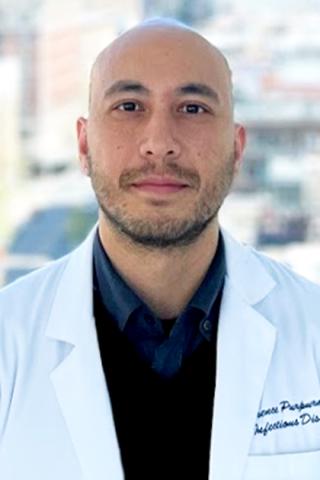354 Studies Now Enrolling
RECOVER-AUTO: A Platform Protocol for Evaluation of Interventions for AutonomicDysfunction in Post-Acute Sequelae of SARS-CoV-2 Infection (PASC)
Treatment for Long-COVID: RECOVER-AUTO
| Sponsor: | National Institutes of Health |
| Enrolling: | Male and Female Patients |
| IRB Number: | AAAV2409 |
| U.S. Govt. ID: | NCT06305780 |
| Contact: | Max Flanagan: 646-317-1626 / mhf2142@cumc.columbia.edu |
Additional Study Information:
Certain investigational drugs (IVIG and Ivabradine) can help treat the system that controls automatic body functions such as heartbeat, blood pressure, and digestion associated with Long COVID. Long COVID is defined as symptoms associated with COVID that have lasted for at least 3 months and occur or worsen at least 1 month after infection. The study will enroll participants 18 years and older, with Long COVID, who experience Postural Orthostatic Tachycardia Syndrome (POTS), which is due to autonomic nervous system dysfunction. POTS is a condition that causes a number of symptoms when you transition from laying down to standing up, such as a fast heart rate, dizziness, and fatigue. Your participation in the study could last either 6 or 12 months (1 year), depending on which study arm or group you are enrolled in. You will be randomly assigned to either receive an active study drug (IVIG or Ivabradine) or to receive a placebo. A placebo looks like the study drug but has no active ingredients. In addition, you will have an equal chance to be part of the coordinated non-drug care group consisting of lifestyle changes such as diet modification, wearing a compression belt around the stomach, measuring blood pressure, physical activity, assisted care and motivation through weekly phone calls with a care coordinator; or the usual non-drug care group with the routine healthcare guidelines for diet and lifestyle changes. There are possible risks from participating in this study, which include side effects from the study treatments (detailed in the consent form), risks associated with blood draws, nasal swabs, and physical ability tests. You will be compensated for being in this study and the amount will depend on the investigational drug group you are randomly assigned to. If you are part of the Ivabradine group, you may receive a maximum total of $1,575 or $3,075, and if you are part of the IVIG group, you may receive a max total of $13,825 or $15,325.
This study is closed

